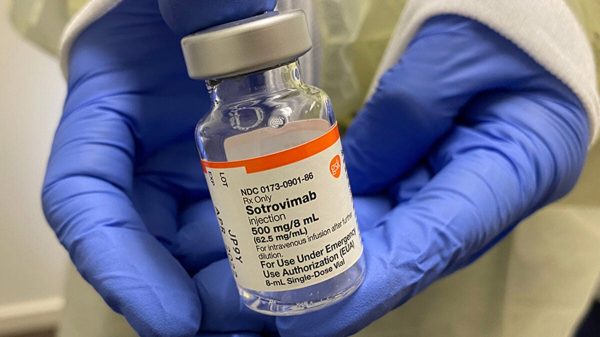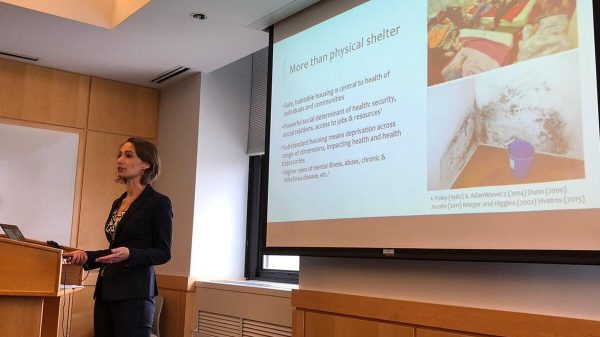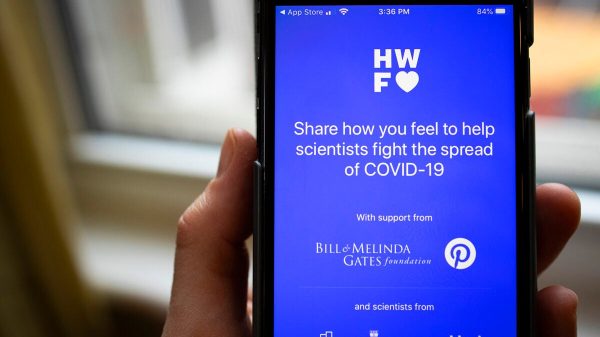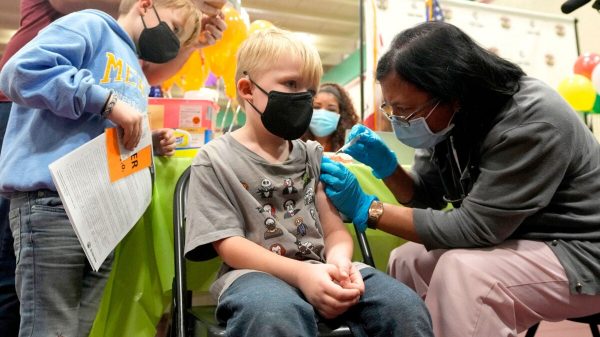People who are vaccinated for SARS-CoV-2 but get breakthrough infections may be less likely to spread the virus because they shed it for a shorter period than unvaccinated people who are infected, according a new study led by Harvard T.H. Chan School of Public Health.
The researchers also determined that the Delta variant’s infectiousness is likely not due to high virus production in people who are infected, because it appears that virus production is similar across different SARS-CoV-2 variants.
The study was published online Wednesday in the New England Journal of Medicine.
“Our work provides the most detailed information to date about how viral concentrations change in the body across the full duration of SARS-CoV-2 infection,” said Stephen Kissler, postdoctoral fellow in the Department of Immunology and Infectious Diseases and co-author of the study. “The study helps us to understand how breakthrough infections compare to non-breakthrough infections and how virus production compares in people who are infected with different variants of this virus.”
Prior to this study, some researchers speculated that vaccinated individuals produce similar amounts of virus as unvaccinated individuals, and that viral production may be similar across SARS-CoV-2 variants, including the Delta variant, but little data existed to support these hypotheses.
To determine the validity of these hypotheses, Kissler and his team collected and analyzed 19,941 SARS-CoV-2 viral samples from 173 individuals obtained as part of the National Basketball Association’s occupational health program between Nov. 28, 2020, and Aug. 11, 2021. The researchers compared SARS-CoV-2 viral dynamics among individuals infected with various variants, including the Alpha and Delta variants, and individuals who were vaccinated versus those who were unvaccinated.
Virus production and the duration of acute infection were similar for all of the variants. However, breakthrough infections in vaccinated individuals cleared faster — on average, in 5.5 days — than infections in unvaccinated individuals, which took an average of 7.5 days to clear. This finding suggests that people with breakthrough infections may be as infectious as unvaccinated people in the early stage of their infection, but that those with breakthrough infections are infectious for a shorter period and therefore less likely to transmit the disease to others over time.
“This work contributes to our understanding of the viral dynamics in COVID-19 across variants and vaccinated and unvaccinated individuals,” said Yonatan Grad, Melvin J. and Geraldine L. Glimcher Associate Professor of Immunology and Infectious Diseases and co-senior author of the study. “Our findings help us to understand the basis of high transmissibility of the Delta variant and of decreased transmissibility in the case of breakthrough infections. The findings also build on our prior work that showed how sequential tests can be used, including to tell whether an infected individual is at the start or near the end of an infection.”
The study also shows the value for public health of cross-sector collaborations. “Much credit goes to the NBA and the National Basketball Players Association for their enthusiasm for sharing findings learned from their occupational health program,” said Grad.
Although this study provides some of the first direct data for virus production across variants and vaccination status, the authors caution that it was conducted in predominantly young, male, and healthy participants, and is therefore not representative of the general population. Further research in other populations is needed.
This research was supported by Huffman Family Donor Advised Fund, Fast Grant funding from the Emergent Ventures at the Mercatus Center (George Mason University), Morris-Singer Fund for the Center for Communicable Disease Dynamics at Harvard Chan School.



























